Gaza's Al-Shifa hospital battle: a 'diplomatic failure' for Israel
Window to defeat Hamas is 'closing', warns former Israeli PM, as hospital scenes swing public opinion
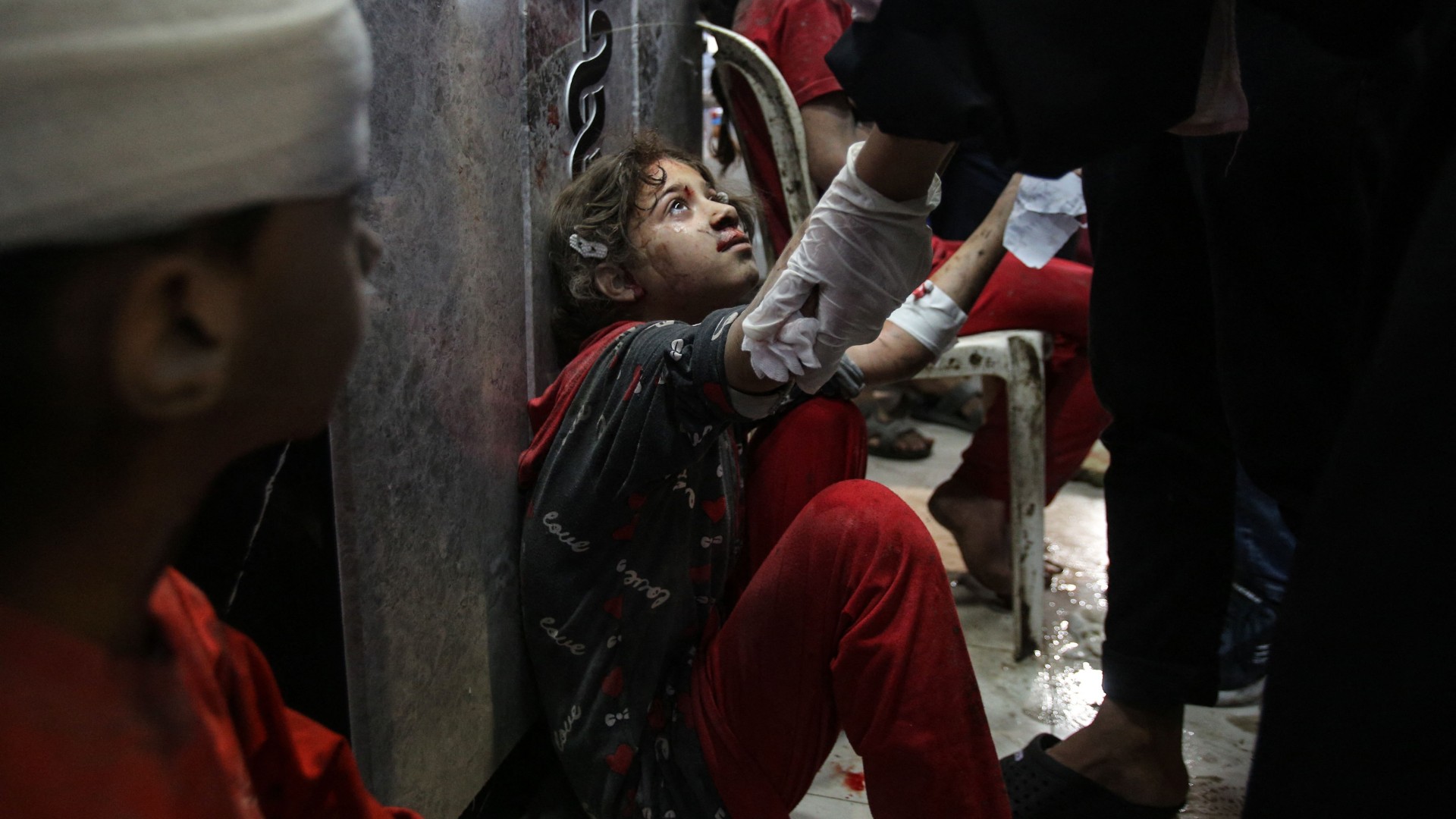
A free daily email with the biggest news stories of the day – and the best features from TheWeek.com
You are now subscribed
Your newsletter sign-up was successful
Gaza's biggest hospital has become the epicentre of fighting between Israeli forces and Hamas in the battle on the ground and for world opinion.
The World Health Organization (WHO), which lost all communication with the Al-Shifa hospital over the weekend, described the situation as "dire". Staff, patients and thousands of sheltering residents are trapped inside due to heavy fighting, and 37 premature babies are at risk of dying as fuel in the facility is running out. Infants are reportedly being wrapped in foil just to keep them alive.
Three UN agencies have "expressed horror" at the situation in hospitals across the Hamas-controlled territory, France 24 reported, with at least 137 attacks registered on healthcare facilities since the Israeli operation in Gaza began following the 7 October attack by Hamas in Israel.
The Week
Escape your echo chamber. Get the facts behind the news, plus analysis from multiple perspectives.

Sign up for The Week's Free Newsletters
From our morning news briefing to a weekly Good News Newsletter, get the best of The Week delivered directly to your inbox.
From our morning news briefing to a weekly Good News Newsletter, get the best of The Week delivered directly to your inbox.
As images of doctors working by candlelight to save newborn babies are beamed around the world, the risk for Israel, said columnist Avi Issacharoff in the Tel Aviv newspaper Yedioth Ahronoth, is that "a relatively successful military operation" is turning "into one of the biggest political and public diplomacy failures Israel has ever known".
'Safe havens are now scenes of devastation'
Establishing control over Al-Shifa is a "key Israeli objective for military and political reasons", said Jason Burke in The Guardian.
The Israeli Defense Forces (IDF) has claimed that Hamas's main base of operation lies underneath the sprawling medical complex that dominates the centre of Gaza City, reported The Times of Israel. Israel has also accused Hamas of using the thousands of patients and staff in the hospital as "human shields".
Hamas, which denies it has command posts under Al-Shifa, claims the hospital is under a "complete siege" and surrounded on all sides by Israeli forces. Al Jazeera, apparently referencing Munir al-Boursh, an undersecretary at the Hamas-run health ministry, has reported that Israeli snipers continue to fire at anyone near the hospital, "pinning thousands still trapped inside the besieged facility down without electricity, water, or food".
A free daily email with the biggest news stories of the day – and the best features from TheWeek.com
Over the weekend, Israel's President Isaac Herzog denied the IDF is targeting Al-Shifa and told the BBC there is a "lot of spin by Hamas" and that "everything is operating" at the hospital. On Sunday, Israel's military announced evacuation routes from three hospitals in Gaza, including Al-Shifa, so, it said, people could safely move south. It also said it was ready to evacuate babies from the hospital, but Prime Minister Benjamin Netanyahu claimed on NBC News that an offer to provide fuel had been "refused" by Hamas.
WHO chief Tedros Ghebreyesus seemed to support reports that Al-Shifa "is not functioning as a hospital any more", and warned the world "cannot stand silent" while hospitals, which "should be safe havens", are "transformed into scenes of death, devastation, and despair".
'Public opinion rapidly swinging against Israel'
"As crucial as Israel feels the operation is, it is also fraught with diplomatic risk," said Burke.
The White House national security adviser Jake Sullivan told CBS News on Sunday the US had no wish to "see firefights in hospitals where innocent people, patients receiving medical care, are caught in the crossfire" and had "active consultations" with the IDF on the matter.
For the Biden administration, which is facing increasing pressure in the US to soften its position towards a ceasefire, "fears of the hospital becoming the scene of a deadly battle is part of a broader concern by the US over the growing number of civilian casualties in Gaza", said Israeli newspaper Haaretz.
Netanyahu may be digging in for a "long and difficult war", former Israeli PM Ehud Barak told Politico, but Israel has only weeks left to eliminate Hamas and achieve its military objectives, "as public opinion – most significantly in the US – rapidly swings against its attacks on Gaza", said the news site.
Israeli military planners "are well aware that international pressure has halted Israeli offensives or counterattacks in a series of previous wars", said Burke, citing the Six-Day War in 1967, the 1973 Yom Kippur War and the 1982 invasion of Lebanon, when the IDF "rushed to make gains in the final hours before ceasefires were imposed".
"You can see the window is closing. It's clear we are heading towards friction with the Americans about the offensive," said Barak. In reference to Washington's role as the main guarantor of Israel's security, he concluded: "America cannot dictate to Israel what to do. But we cannot ignore them."
Elliott Goat is a freelance writer at The Week Digital. A winner of The Independent's Wyn Harness Award, he has been a journalist for over a decade with a focus on human rights, disinformation and elections. He is co-founder and director of Brussels-based investigative NGO Unhack Democracy, which works to support electoral integrity across Europe. A Winston Churchill Memorial Trust Fellow focusing on unions and the Future of Work, Elliott is a founding member of the RSA's Good Work Guild and a contributor to the International State Crime Initiative, an interdisciplinary forum for research, reportage and training on state violence and corruption.
-
 Tourangelle-style pork with prunes recipe
Tourangelle-style pork with prunes recipeThe Week Recommends This traditional, rustic dish is a French classic
-
 The Epstein files: glimpses of a deeply disturbing world
The Epstein files: glimpses of a deeply disturbing worldIn the Spotlight Trove of released documents paint a picture of depravity and privilege in which men hold the cards, and women are powerless or peripheral
-
 Jeff Bezos: cutting the legs off The Washington Post
Jeff Bezos: cutting the legs off The Washington PostIn the Spotlight A stalwart of American journalism is a shadow of itself after swingeing cuts by its billionaire owner
-
 How long can Nato keep Donald Trump happy?
How long can Nato keep Donald Trump happy?Today's Big Question Military alliance pulls out all the stops to woo US president on his peacemaker victory lap
-
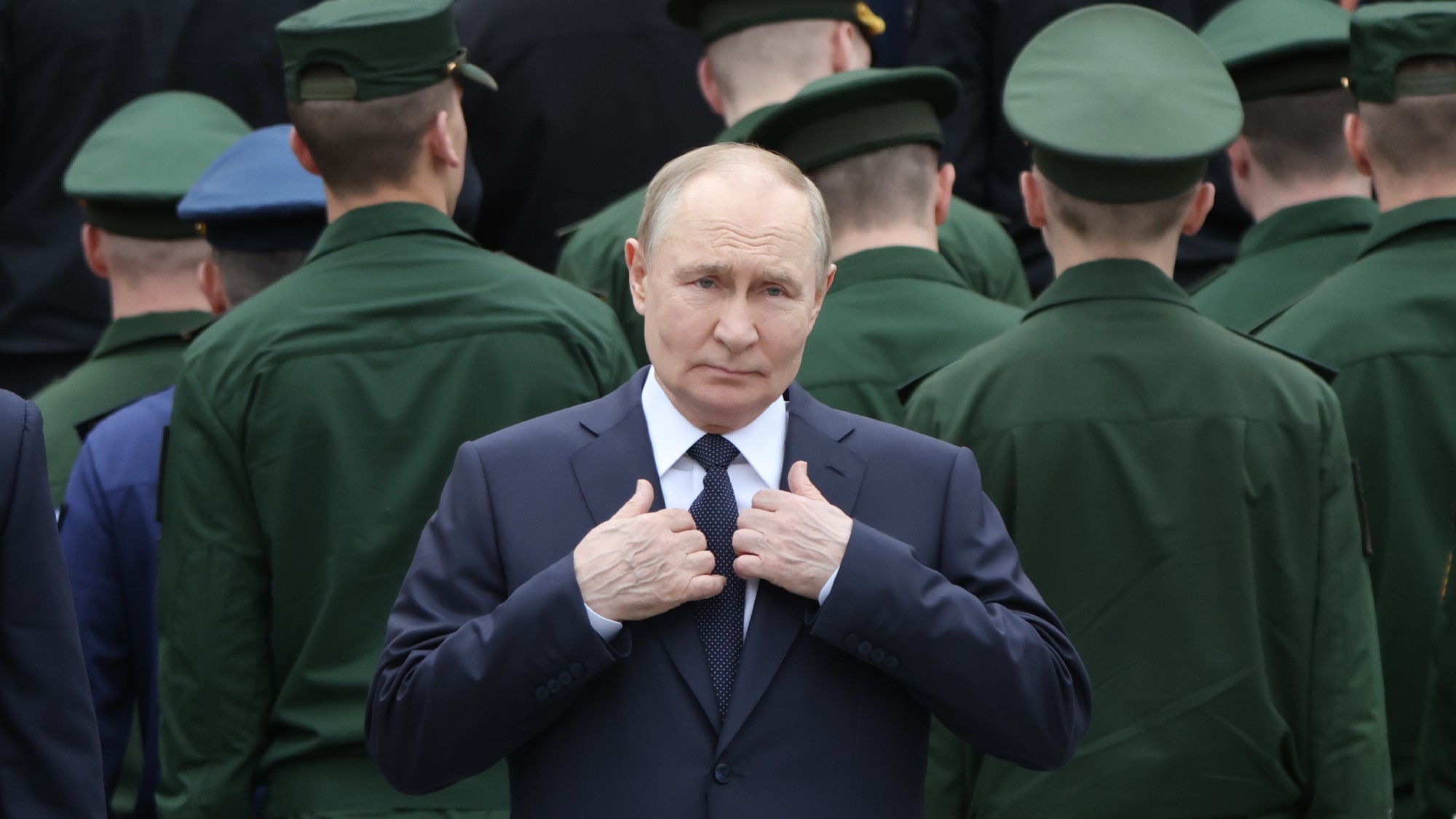 How far would Russia go for Iran?
How far would Russia go for Iran?Today's Big Question US air strikes represent an 'embarrassment, provocation and opportunity' all rolled into one for Vladimir Putin
-
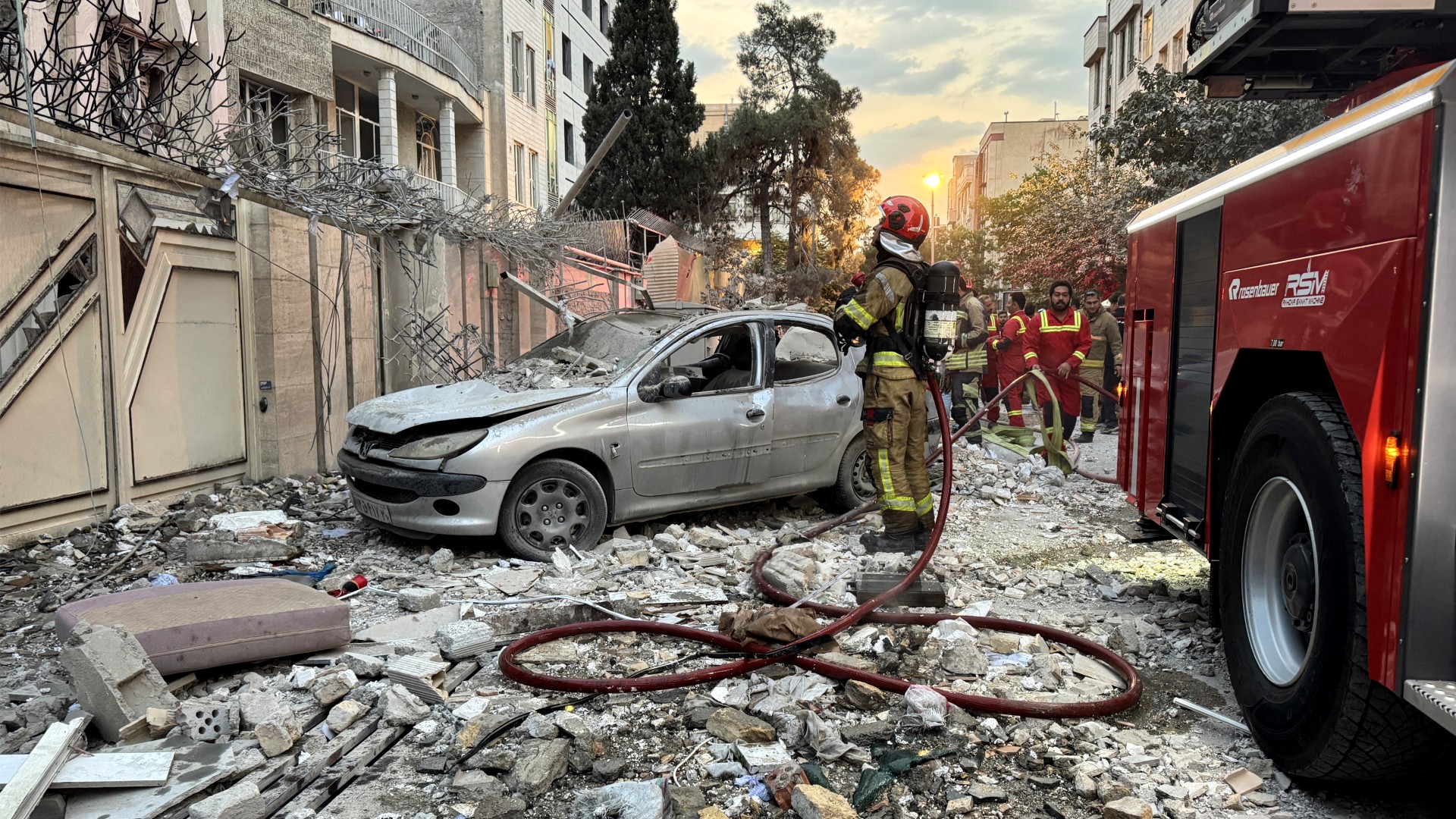 How the Israel-Iran conflict broke out
How the Israel-Iran conflict broke outThe Explainer Israel's strike on Iran's nuclear and missile programmes was years in the planning
-
 Will the UK get involved in the Israel-Iran conflict?
Will the UK get involved in the Israel-Iran conflict?Today's Big Question Keir Starmer is 'walking a tightrope' in helping Israel limit Tehran's nuclear capabilities without being seen to do so
-
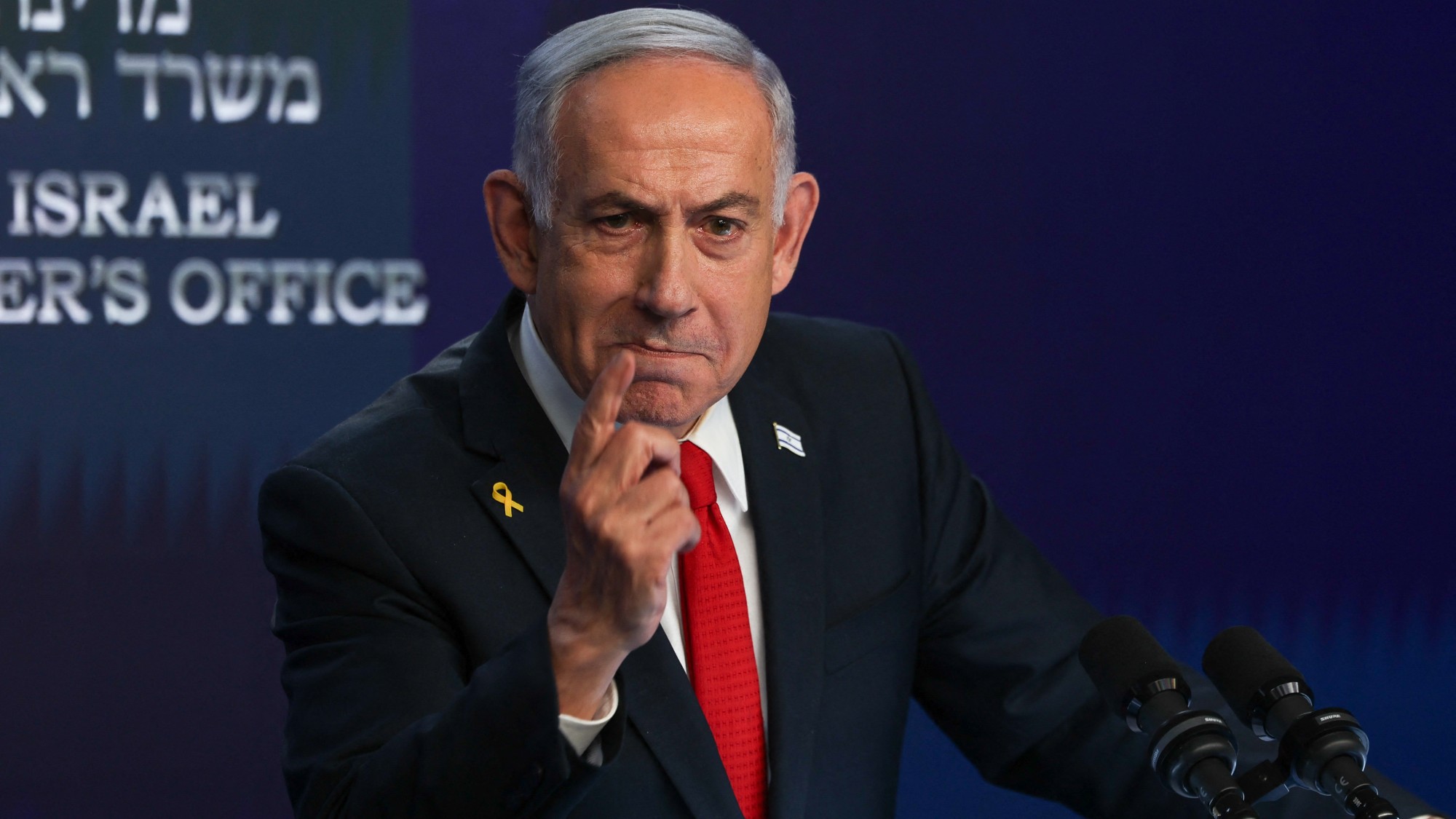 What happens if Israel attacks Iran?
What happens if Israel attacks Iran?TODAY'S BIG QUESTION Israel is 'ready to strike' and Tehran has plans for counterattacks against the US as nuclear talks appear deadlocked
-
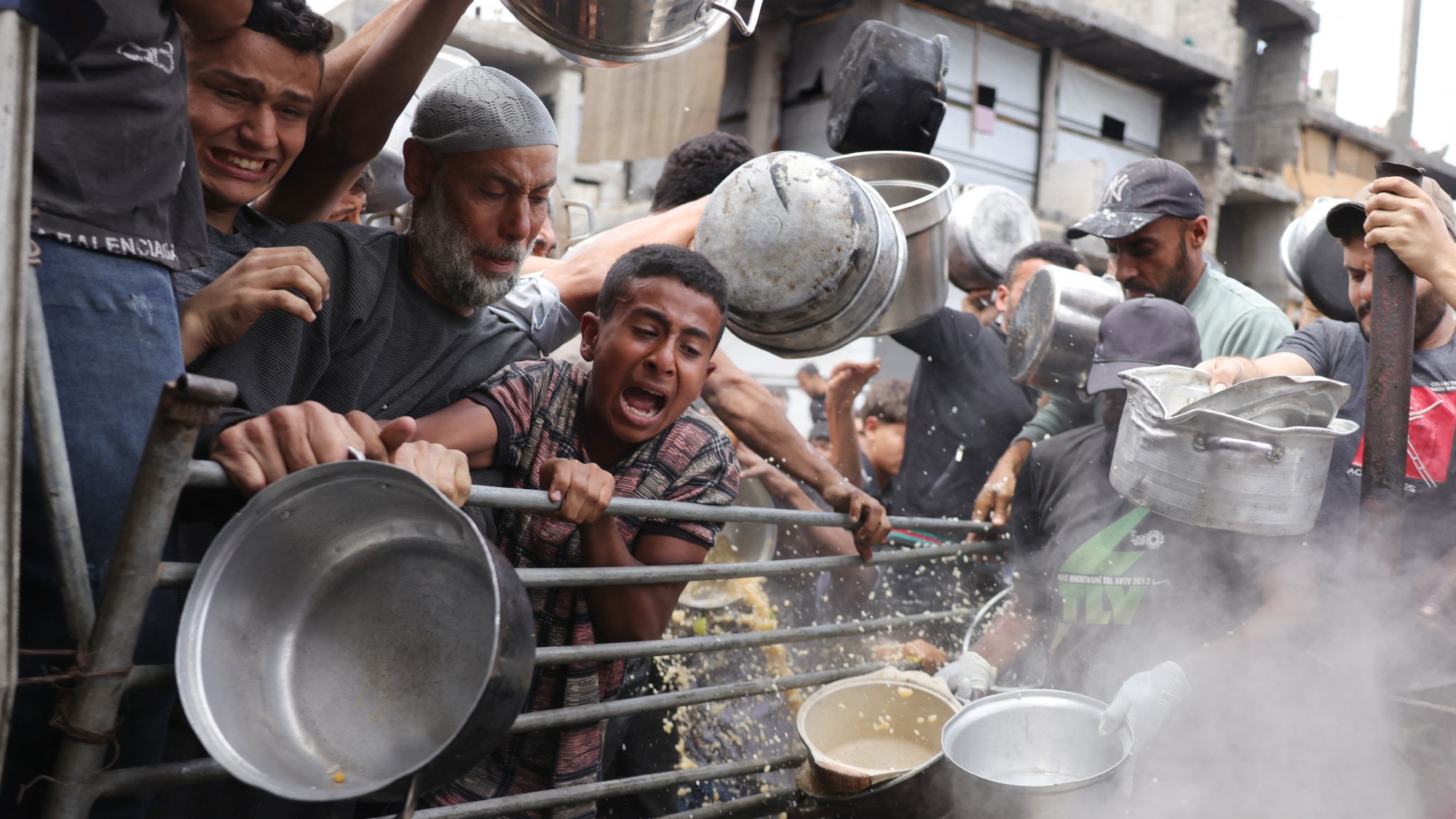 Is Israel finally feeling the heat on Gaza?
Is Israel finally feeling the heat on Gaza?Today's Big Question Benjamin Netanyahu allows aid to resume amid mounting international pressure and growing internal turmoil
-
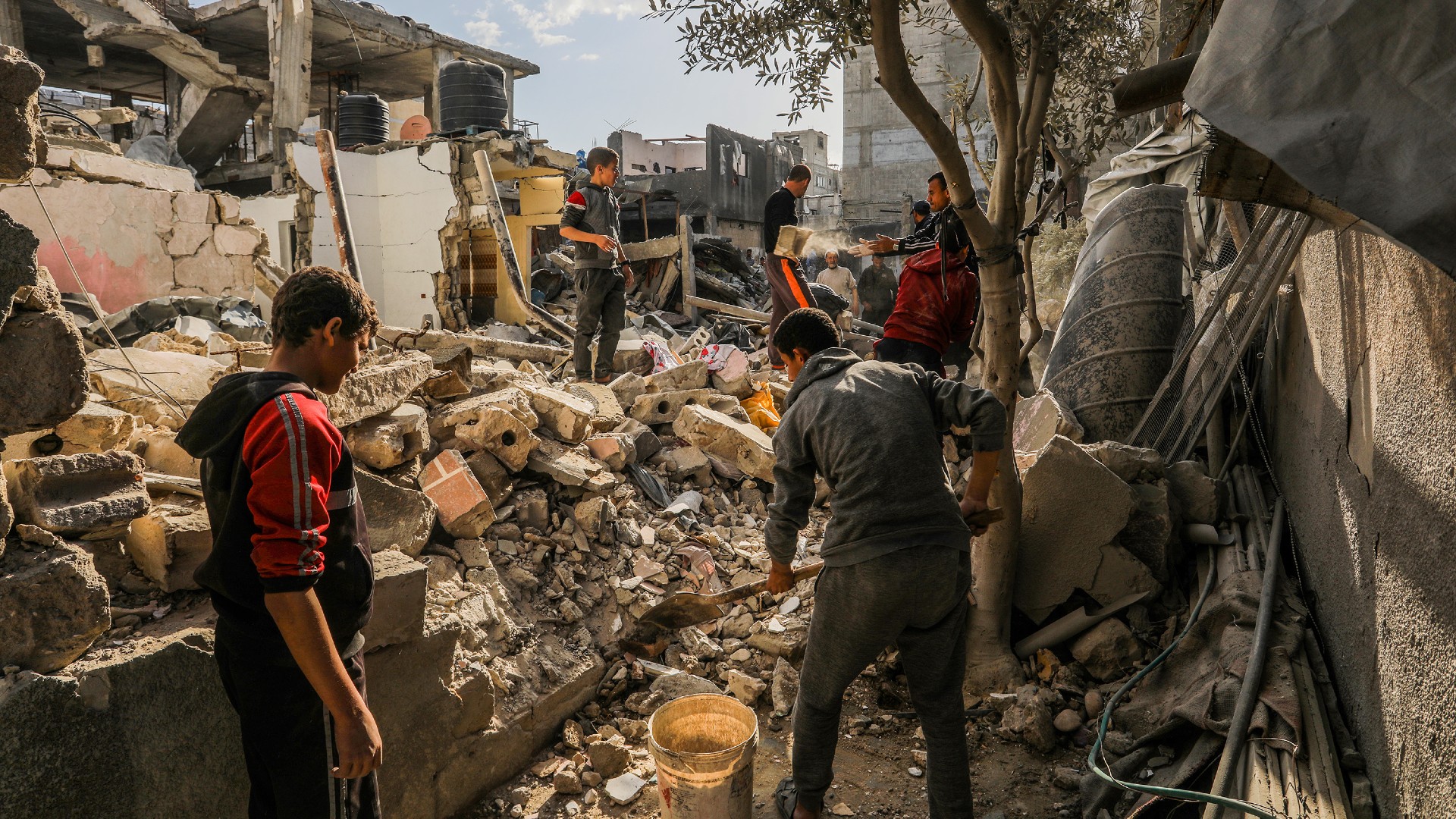 Israeli air strikes in Gaza: why has ceasefire collapsed?
Israeli air strikes in Gaza: why has ceasefire collapsed?Today's Big Question Start of 'broader and more sustained military operation' denounced by domestic groups representing hostage families
-
 Is Gaza ceasefire deal about to fizzle out?
Is Gaza ceasefire deal about to fizzle out?Today's Big Question Israel and Hamas accuse each other of deliberately breaking first phase of the fragile truce, which is set to expire on Saturday